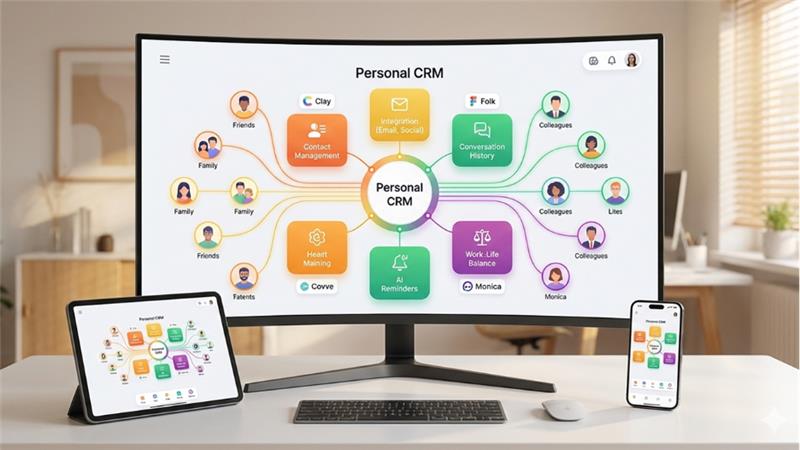Today’s digital world has led to major challenges when choosing the right marketing platform. More than just an informed decision, business needs a sophisticated, result-driven strategy that helps maintain a good customer relationship.
Among a wide range of cutting-edge digital marketing platforms available, two leading platforms—HubSpot and MailChimp have gained significant traction. Both platforms are designed with intuitiveness, scalability, and robust features that have transformed the email marketing landscape. While both these platforms can automate your task, streamline processes, and save time, they individually serve different goals.
This detailed HubSpot vs. MailChimp comparison post explores the key features, benefits, limitations, pricing, and customer support capabilities for both platforms. This comprehensive differentiation can let you make informed decisions tailored for your specific business needs in 2025 and beyond.
HubSpot and MailChimp: A Detailed Overview
HubSpot is an extensive CRM and marketing tool integrated with a suite of vast range of features that a basic CRM needs requires. This includes various free tools, like contact, management, website activity monitoring, and email platforms like Gmail and Outlook integration.
On the other hand, MailChimp is a widely known email marketing solution that helps small and large businesses manage and execute outreach campaigns. The platform offers various simple, effective, and easy to navigate features for sending, monitoring, and analyzing email performance.
So, which one should you choose? However, choosing the right platform between HubSpot and MailChimp requires you to understand the unique characteristics and fundamental differences. For making this crucial decision, first identify a few key factors: your business goals, requirements, and budget. The right platform can mean the world of difference and can make or break your business growth. This comparison guide will differentiate both platforms based on key factors, like cost, automation, and integration. Let’s dive into the deep.
HubSpot vs. MailChimp: Quick Comaprison
| Features | HubSpot | MailChimp |
| CRM | Offers built-in, free CRM for basic purposes and manages the complete customer lifecycle. | Provides Marketing CRM lite with limited functionality; less effective than HubSpot |
| Ease of Use | Complex platform integrated with powerful tools that requires a long learning curve | Simple, drag-and-drop feature suitable for beginners and small businesses |
| Automation | Integrated with advanced automation workflow | Focuses on basic automation, email-centric automation |
| Integration | More powerful, robust integrations capability, approx. 2000 native integration, like Zapier | Less but strong integrations of approx. 250+ integrations; also with Zapier |
| Pricing | Limited free plans available, advanced feature requires premium subscription | Cost-effective and decent pricing system with three options, ideal for small business |
| Ideal for | Comprehensive CRM and large business marketing automation | Email marketing automation for small businesses, like e-commerce |
| Reporting & Analytics | Offers 30 free extensive insights reporting and vary further based on chosen plan | Extensive, less detailed reports, less effective compared to HubSpot |
| Customer Support | Provide a wide support system through community, email, and phone | Robust email support, chat, and phone |
HubSpot: An All-in-Compassing Marketing CRM
What is HubSpot?
At its core, HubSpot is a comprehensive platform designed to streamline marketing, sales, and customer service requirements. It involves complex features and robust tool integration that often require an extensive learning curve for its users to get in handy. This is particularly beneficial for businesses requiring CRM, automation, email marketing, and comprehensive reporting in one place.
The installation and working process of HubSpot is straightforward. You need to simply create a new account using your Gmail address and complete all the instructions tailored to ensure security requirements. This will redirect you to an intuitive, easy-to-understand interface that honestly takes time to get into the rhythm.
Key Features of the platform
While HubSpot and MailChimp offer similar functionalities, they are frequently used for different business requirements. HubSpot integrates a suite of powerful features that make it different from other alternative marketing platforms. Here are some of the followings:
- Free CRM System:
The platform offers a built-in, customizable CRM system that simplifies contact management, deal tracking, and pipeline management. It blends CRM with other platforms like customer service and content management systems (CMS) for more effective customer management and relationships.
- Marketing Automation:
HubSpot offers free marketing automation capability that sets the limit for sending automated emails based on customer interest and their behavior. Automation includes implementing if/them branch workflow, lead monitoring, customer journey mapping, and behavioral triggers.
- Lead Management:
The in-built CRM organizes customer data into a centralized database for efficient lead management, follow-up monitoring, and simplifying outreach platforms. For successful lead management, the platform integrates features, like landing pages, Pop-ups, live chat and forms directly with CRM.
- Content Marketing:
Automating content outreaching tasks by implementing blogging tools, like automatic blog posting, scheduling, SEO recommendations, and more. This also integrates AI tools like content remixes for repurposing high-impacting content for various channels.
- AI-driven Tools:
They leverage various advanced AI features like chatbot interaction, content assistance, and predictive insights to analyze the accurate time to send emails. These AI tools save time and reduce manual errors by automating repetitive tasks, performing predictive analytics, and gaining valuable insights. This analysis helps you make intelligent decisions for taking immediate preventive actions before things get worse.
Pros and Cons of HubSpot
Pros:
- Robust CRM with free accessibility
- Great for large and scaling teams
- High quality analytics and reporting
- Sales hub and marketing automation alignment
- AI integration for automating tasks
Cons:
- Expensive premium plans for accessing advanced features
- Complex features and integration make it difficult to understand for beginners
Also Read
Pipedrive vs HubSpot: Choosing the Perfect CRM for your Business Needs
MailChimp: A Simple Email Marketing Champion
What is MailChimp?
Initially, the platform was built for basic email automation tasks, but now it has become a more sophisticated marketing solution. Over time, MailChimp positioned itself as a reputable platform for making email marketing streamlined and accessible. It integrates various automation tools for sending, managing, monitoring email campaigns and evaluating their performance. Additionally, they are mainly designed for small sized businesses for connecting customers through emails and marketing channels, ultimately improving customer relationships.
Essential Features of MailChimp
The sophisticated platform offers a wide array of features that streamline email management and marketing automation tasks. From content generation to client data management and customer relationship tracking, these robust features help automate a wide range of applications.
- CRM Lite:
- Combined customer data, segment audience, personalize campaigns
- Manage customer profiles, activity history, and tags/Groups
- Automating marketing tasks, create email campaigns, and improve client engagement
- e-commerce Integration:
- Enable online shopping stores to connect with email platforms
- Integrate features like product recommendations, personalize responses, and abandon cart recovery
- Analyse customer purchase history, interest, and behaivour for executing targeted email campaigns.
- Email Campaign Builder:
- Automate creating and sending email campaigns to the right audience at the right time.
- Offers two builders, a new builder and a classic builder which contains diverse email automation features.
- Device improvement, drag and drop features, and customizations capability to provide an enhanced shopping experience.
- Pre-Built Email Templates:
- Offers various kind of email templates categorized for newsletter, event invitation, welcome emails, and more.
- These ready-made email templates help users instantly generate professional-looking campaigns.
- With customization support, users can create their custom templates manually or by importing HTML code.
- Reports and Analytics:
- Helps analyze campaign performance, data-driven insights, and informed decision making.
- Provide other metrics such as recipient information, click through rates, subscriber activity, and geographic locations.
- Customer engagement monitoring, audience behaivour, revenue generation, and competitor analysis
Pros and Cons of MailChimp
Pros:
- Simple, user-friendly interface; perfect for beginners
- Cost-effective for startups and small businesses
- Effective marketing automation for simplifying tasks
- Compelling pre-built and custom templates
- Robust e-commerce integration features
Cons:
- Basic CRM functioning and deliverability issues
- Limited and Lack of versatility in automation
- Expensive pricing model
Final Decision: How to Choose the Right Platform
In the HubSpot vs MailChimp comparison, who will win? While the decision depends upon your unique requirements, budget, and also your team’s capability. Whether you choose HubSpot or MailChimp, the decision can lead to sustainable growth, lasting customer relationships, and high a higher return on investment (ROI).
You should consider HubSpot if:
- You and your business need a centralized platform for sales, marketing, and customer service.
- You need to integrate robust, scalable automation and CRM platform that grows with your business.
- Detailed insights, continuous monitoring, and data-driven decisions can save you time, reduce risks of error, and boost productivity.
- Your business operates on inbound marketing strategies for blogging, premium content, and SEO optimizations.
You should consider MailChimp if:
- You operate a startup or small business and want a basic CRM feature for managing email marketing campaigns.
- You prioritize cost-effective and budget friendly solution
- You want easy integrations, limited automation, and email features
- Your business depends on a small customer journey lifecycle
Conclusion:
There is not any winner in this HubSpot vs MailChimp debate, while each platform has its own unique strengths and characteristics. HubSpot refers to a comprehensive system integrated with cutting-edge marketing automation, AI tools, and advanced data analysis capability. However, MailChimp focuses on email marketing for small business-like e-commerce stores and seeking budget-friendly options. Meanwhile, both HubSpot and MailChimp are capable and effective in their own right but possess different needs and features. That’s why it is crucial to analyze your business requirements and needs and then make decisions about whom you should invest.



